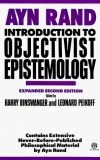
Introduction to Objectivist Epistemology is a work of philosophy by Ayn Rand and Leonard Peikoff, which Rand considered her philosophical treatise. First published in its combined form in 1979, the majority of the book is Rand's summation of the Objectivist theory of concepts and solution to the problem of universals. …
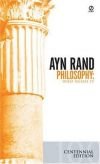
Philosophy: Who Needs It is a posthumous collection of essays by Ayn Rand, published in 1982, that deal with philosophy. It was the last book Rand worked on during her lifetime.

The Romantic Manifesto: A Philosophy of Literature is a non-fiction work by Ayn Rand, a collection of essays regarding the nature of art. It was first published in 1969, with a second, revised edition published in 1975.

For the New Intellectual: The Philosophy of Ayn Rand is a 1961 work by Ayn Rand, her first long non-fiction book. Much of the material consists of excerpts from Rand's novels, supplemented by a long title essay that focuses on the history of philosophy.
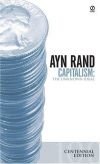
Capitalism: The Unknown Ideal is a collection of essays, mostly by Ayn Rand, with additional essays by her associates Nathaniel Branden, Alan Greenspan, and Robert Hessen. The book focuses on the moral nature of laissez-faire capitalism and private property. The book has a very specific definition of capitalism, a …
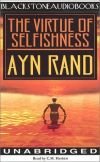
Ayn Rand here sets forth the moral principles of Objectivism, the philosophy that holds human life--the life proper to a rational being--as the standard of moral values and regards altruism as incompatible with man's nature, with the creative requirements of his survival, and with a free society.More than 1.3 million …

We the Living is the debut novel of the Russian-American novelist Ayn Rand. It is a story of life in post-revolutionary Russia and was Rand's first statement against communism. Rand observes in the foreword that We the Living was the closest she would ever come to writing an autobiography. Rand finished writing the …

Anthem is Ayn Rand?s classic tale of a dark future age of the great "We"?a world that deprives individuals of name, independence, and values. Written a full decade before George Orwell's "1984," this dystopian novel depicts a man who seeks escape from a society in which individuality has been utterly destroyed. Rand …
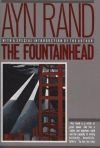
The Fountainhead has become an enduring piece of literature, more popular now than when published in 1943. On the surface, it is a story of one man, Howard Roark, and his struggles as an architect in the face of a successful rival, Peter Keating, and a newspaper columnist, Ellsworth Toohey. But the book addresses a …

 English
English Español
Español Deutsch
Deutsch
